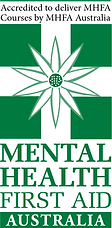
As we approach the end of the year, we’d like to thank you for your continued partnership and support throughout 2025.
Holiday closure dates
Microfirm Training will be closed from close of business Monday 22 December 2025, reopening on Monday 12 January 2026.
We wish all our clients a safe, relaxing, and happy end to 2025.
Thank you for choosing Microfirm Training to delivering your training and look forward supporting you again in 2026.
Microfirm Training Team

Bringing more than 40 years corporate training and executive leadership experience I am passionate about increasing the capacity of the Australian community to provide initial assistance for First Aid, Mental Health problems and associated crises. As a First Aid Trainer and Assessor and a Master Mental Health First Aid Instructor I offer years of knowledge and experience in emergency services serving New South Wales Police Force, Beach Lifeguard and volunteer lifesaver.
My career has been focused around service all my life and I draw from my studies, personal life, voluntary work and employment within a crisis and suicide prevention. A first responder as a Beach lifeguard/ Volunteer lifesaver and Police Officer, I have personal anxiety, depression, stress, loss and destruction having experienced and been involved in many critical incidents where I personally required first aid and counseling.
My own real-life battle with witnessing daily trauma in my employement and in the society I was serving gave me a first-hand experience as to how to provide empathetic support to my community.
John Mamacan JP, Dip Voc Education Training
Trainer & Assessor | Licensed Master MHFA Instructor
Managing Director
.png)
New UETDRMP018 Perform rescue from a live low voltage panel Course Now Live!!
We’re thrilled to announce that the UETDRMP018 Perform rescue from a live low voltage panel unit is officially available for delivery! 🎉
This updated course replaces UETDRMP007Perform rescue from a live low voltage panel
📅 the teach-out periods for the old units:
-
UETDRRF004 Perform rescue from a live low voltage panel– final delivery date: 30 September 2025
-
UETDRMP007 Perform rescue from a live low voltage panel– final delivery date: 9 August 2026
- $120 ex GST
ONLINE - A MUST FOR ALL CHILD CARE STAFF
This course covers performance outcomes, skills and knowledge required to identify children and young people who are at risk and report in line with legislative requirements. This work occurs within legislative and policy frameworks and carries a duty of care responsibility. This unit applies to workers in a range of job roles providing services to children and young people including in community services and health contexts. Certificates issued by Allens Training Pty Ltd RTO 90909
CHCPRT025 Identify and report children and young people at risk








